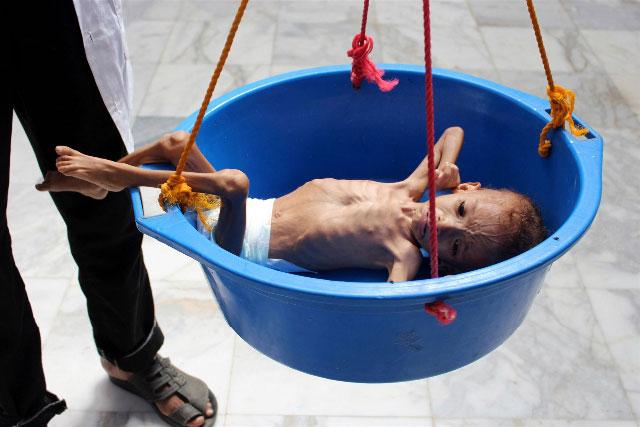You are here
Yemeni NGO sounds alarm on cholera outbreak
By Camille Dupire - Aug 13,2017 - Last updated at Aug 13,2017

Participants of the ‘hackathon’ brainstorm during group sessions on Saturday in Amman (Photo by Brooj Alammari)
AMMAN — Although “the world’s worst cholera outbreak is entirely preventable”, the Yemeni ministry of public health and population has recently reported a total of 408,583 suspected cases of cholera, and 1,885 confirmed associated deaths, the non-governmental organisation Innovative Yemen (IY) said in an interview with The Jordan Times.
The Amman-based organisation on Saturday held a “hackathon”to raise awareness and spread knowledge on the cholera outbreak currently faced by Yemen.
“According to Oxfam, a person dies from cholera every hour in Yemen,” said IY communication leader Maali Jamil, adding “we wanted people to realise how pressing this issue is, not only in Sana’a, but all over the country”.
The idea of a “sprint-like event where people learn about the crisis from subject-matter experts and then work collaboratively to come up with out-of-the-box solutions”, or a “hackhaton”, emerged in early July, when Jamil and her team launched a public appeal to speakers willing to share their knowledge and expertise on the subject.
The NGO searched for Yemeni-based speakers with medical, engineering, science and humanitarian backgrounds to offer an “on-the-ground” analysis of the situation.
“It wasn’t easy,” remembered Jamil, noting “most of the time, the power is off in Yemen, and, when it is not, the signal is hardly reliable.”
Eleven experts from across Yemen were chosen to share their perspectives on combating the epidemic in the conflict-ridden country.
Abdulhakeem Alkohlany, the first speaker of the day, outlined the governmental response to the cholera outbreak, using his daily experience as a paediatrician and community medicine specialist with his local organisation Relief and Sustainable Humanitarian Development. Marije Broekhuijsen, a Dutch national working as Yemen’s WASH cluster coordinator, covered health-related topics, such as desalination or food safety programmes.
Experts in specific governorates, like Sunita Sharma, from International Medical Corps, touched upon the holistic responses provided across Sana’a, Taiz, Adan, Al Dahale’e and Lahj, all heavily affected by the epidemic.
Others speakers, like Abdulsalam Mutahar, project manager at the Yemen national strategy for small and micro enterprise (SMEPS), shared less-commonly spread views of the situation, stressing that the focus should not only be put on humanitarian emergency, but rather on a long-term response.
“Participating in the event was our chance to let people know about ways to bridge the humanitarian-development nexus. We believe that most donours are over-focused on humanitarian work and miss opportunities to create sustainable jobs that can also help in fighting the epidemic,” he told The Jordan Times over the phone.
Building on partnerships with the private sector, SMEPS seeks to respond to the cholera outbreak by creating sustainable solutions in the health and agriculture sectors, he explained.
Streaming live from their Yemeni offices, speakers addressed an audience of some 30 participants who then teamed up with to brainstorm innovative solutions to issues caused by the epidemic.
“We have people from very different background here,” Jamil explained, noting that “for instance, we have civil engineers who are here to discuss the infrastructure problems and the solutions their sector can provide”.
For Yousef Hamidaddin, chairman of IY, the event did not seek to produce an official publication or solution paper to the issue, but rather “to create an innovative process of generating, developing and communicating problem contents to increase awareness, and participate in solving problems”.
“At IY, we work on identifying crucial issues and suggesting innovative solutions or solution-makers to those issues. We then match them with national entities who can work on implementing on-the-ground responses in Yemen,” Hamidaddin said.
Open to the public and free of charge, the event took place all day in the buildings of the NGO Generations for Peace in Amman.
Related Articles
GENEVA — A cholera outbreak in Yemen has now surpassed 300,000 suspected cases, the Red Cross said Monday as the war-torn country reels from
GENEVA — The medical charity Medecins Sans Frontieres (Doctors Without Borders, MSF) is closing most of its 37 cholera treatment centres in
LONDON — Scientists have found that a strain of cholera causing an epidemic in Yemen — the worst in recorded history — came from eastern Afr
















